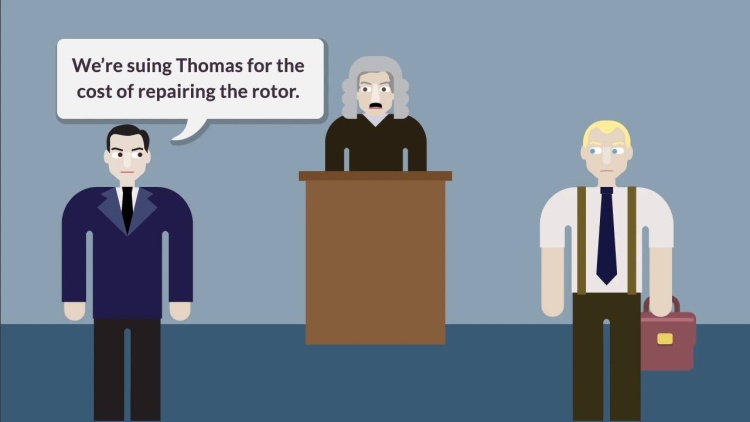Pacific Gas & Electric Co. v. G.W. Thomas Drayage & Rigging Co.
California Supreme Court
69 Cal. 2d 33 (1968)
- Written by Megan Petersen, JD
Facts
In 1960, G.W. Thomas Drayage & Rigging Co. (Thomas) (defendant) entered into a contract with Pacific Gas & Electric Co. (PG&E) to provide labor and equipment necessary to remove and replace the upper cover for PG&E’s steam turbine. Thomas agreed to perform the work at its own risk and expense and to indemnify PG&E for any “loss, damage, expense and liability resulting from injury to property” or any other act associated with performance of the contract. During performance, the cover fell and damaged part of the exposed rotor of PG&E’s turbine. PG&E brought suit to recover $25,144.51 in damages. The trial court awarded judgment for PG&E on the ground that Thomas’s indemnity provision protected PG&E from damage to its own property. The trial court concluded that the “plain meaning” of the indemnity provision in Thomas’s contract was to permit indemnification of damage to PG&E’s property in addition to the property of third parties. The trial court admitted no extrinsic evidence on this issue. Thomas appealed, arguing that the extrinsic evidence should be admissible to show that the “plain meaning” of the indemnity clause was that it should apply only to damage of the property of third parties, not PG&E.
Rule of Law
Issue
Holding and Reasoning (Traynor, C.J.)
What to do next…
Here's why 905,000 law students have relied on our case briefs:
- Written by law professors and practitioners, not other law students. 47,100 briefs, keyed to 995 casebooks. Top-notch customer support.
- The right amount of information, includes the facts, issues, rule of law, holding and reasoning, and any concurrences and dissents.
- Access in your classes, works on your mobile and tablet. Massive library of related video lessons and high quality multiple-choice questions.
- Easy to use, uniform format for every case brief. Written in plain English, not in legalese. Our briefs summarize and simplify; they don’t just repeat the court’s language.





